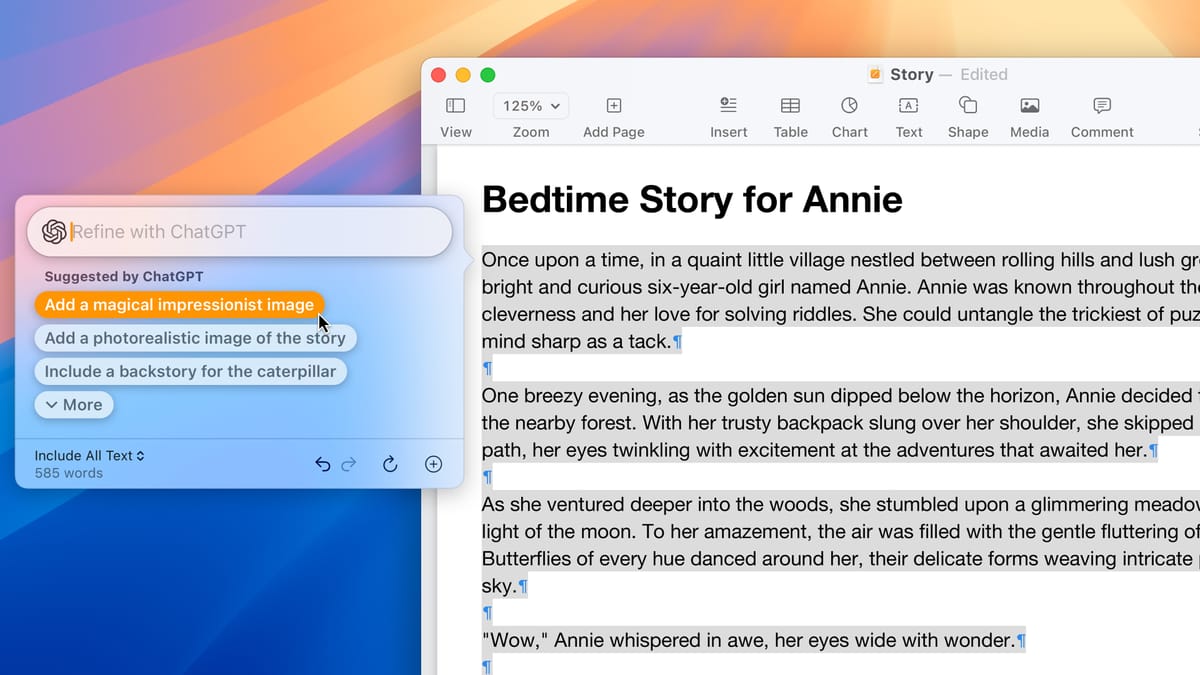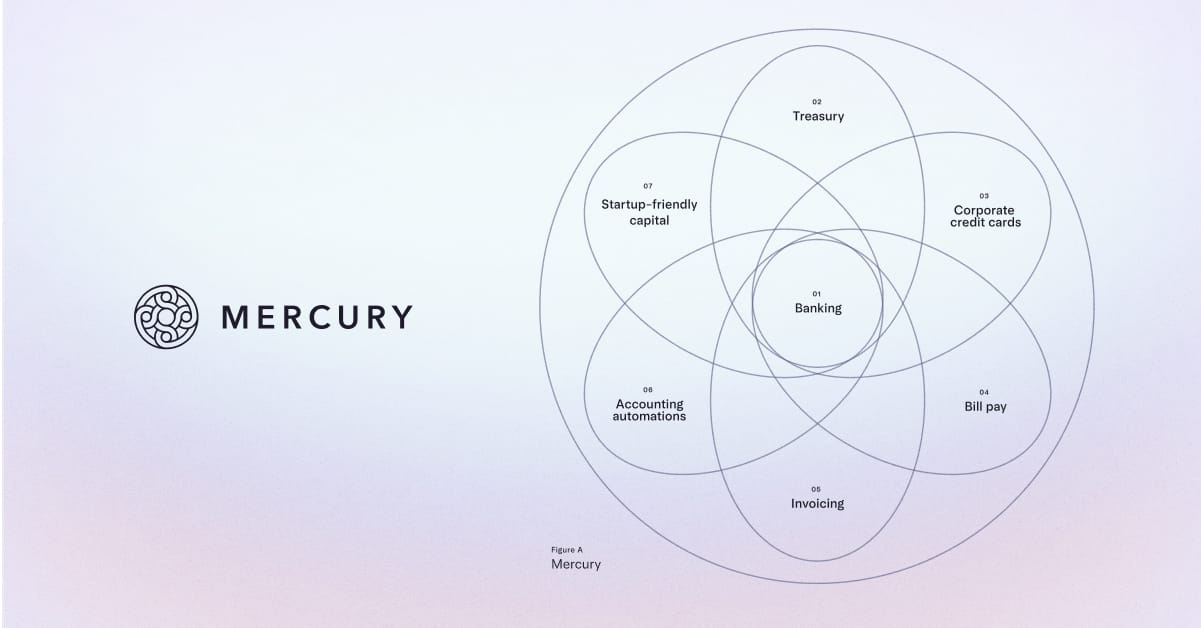Apple’s AI moment arrives
What WWDC told us about the near-term future of computing

CUPERTINO — By the time Apple got around to talking about artificial intelligence on Monday, it had already delivered a full keynote’s worth of announcements about improvements to come across its proliferating array of operating systems. Here was a novel math app that solved your handwritten equations in real time; there was a feature that would let you operate your iPhone from your Mac.
These are the sort of welcome but modest improvements the company often shows off at its Worldwide Developer Conference: gently enhancing the user experience on their devices, but usually not offering anything that would send you running to the Apple Store to upgrade to a newer and more capable device.
Then, halfway through, the pre-recorded keynote arrived at the announcement Mark Gurman’s extraordinary reporting over the weekend had prepared us for: Apple Intelligence, a suite of operating system-level applications of AI that represent the company’s first major effort to integrate generative models into their product lineup.
It was a moment that has seemed inevitable since November 2022, when ChatGPT launched and catalyzed global interest in how AI can enhance products. In the 18 months since, impatient investors have worried that Apple might be letting the moment pass it by. Savvier observers have noted that this is how Apple has worked for decades now: approaching new technologies deliberately, and on its own time; developing its distinctive take on the product; and releasing it only when polished to the company’s quality standards.
Judging from the preview, Apple Intelligence was created in just this way. The company took time to develop principles around what AI should do on its devices. It landed on a suite of AI features for the operating system, designed to make its devices more valuable by leveraging the massive amount of personalized data on your devices. (Sensitive to the implications of such an invasive technology, Apple also took pains to develop a more private approach to data processing for AI apps as well.)
The question now is how polished those features will feel at release. Will the new, more natural Siri deliver on its now 13-year-old promise of serving as a valuable digital assistant? Or will it quickly find itself in a Google-esque scenario where it’s telling anyone who asks to eat rocks?
It will be some time before we know. Journalists were not offered a chance to try any of the new features today, nor could we even ask questions of any of the executives. (Instead we were herded into the Steve Jobs Theater to watch the YouTuber iJustine lob carefully vetted softballs at Apple executives Craig Federighi and John Giannandrea for a half-hour.)
As a result, for now we can’t answer how well it works. And so the most interesting question available to discuss is more like: what is all of this pointing to?
During the keynote, Federighi — Apple’s senior vice president of software engineering — laid out the company’s principles for AI. It should be helpful; it should be easy to use; it should be integrated into products you’re already using; and it should be personalized based on what it knows about you.
Much of what Apple showed off today has long been available for free in other apps. (Perhaps that’s why, as MG Siegler noted today, the company’s stock was actually down about 2 percent after the event.) You’ll be able to automatically generate text almost anywhere you can type in the operating system, Federighi said, whether that be in Pages, Mail, or a third-party app. Similarly, you can use text-to-image tools to create custom emoji or generate DALL-E style images using a new app called Image Playground. (Notably, Image Playground will not generate photorealistic images, likely in an effort to prevent misuse.)
Here the pitch is less about innovation than it is convenience. The present-day AI experience involves a lot of copying and pasting between apps; Apple Intelligence promises to do the work directly on your device and route the resulting data around the operating system for you.
But it’s in Federighi’s final principle — that AI should be personalized around what it knows about you — that Apple’s real advantage is apparent. It’s how the company distinguishes itself from (friendly) rivals like OpenAI or Anthropic, which at the moment offer you only a box to type into, and have limited memory of how you have used their chatbots. Apple can pull from your email, your message, your contacts, and countless other surfaces throughout the operating system, and — in theory — can draw from them to help you more easily navigate the world.
Apple Intelligence also represents a chance to reboot Siri, its perpetually tin-eared and tone-deaf voice assistant. The company demonstrated Siri handling more difficult syntax than it did previously, and with a longer memory. It will also be able to control more parts of the operating system.
Still, it was not nearly as impressive as what OpenAI showed off last month with its emotionally intelligent, low-latency (and hugely controversial) voice mode for ChatGPT. I was left wondering whether Apple might be open to a deeper partnership with OpenAI to improve Siri, or whether the company still hopes to catch up over time.
Speaking of OpenAI, that company did get some limited time on screen Monday. ChatGPT will be integrated into Siri, but somewhat halfheartedly: Siri will still endeavor to answer questions on its own, while routing only some queries to OpenAI. In the demo, Siri makes you tap to confirm that you are OK with Siri doing this — which might be sensible from a privacy standpoint, but feels deeply annoying as a user experience. (Why not just map your iPhone’s action button to ChatGPT’s voice assistant and bypass it altogether?)
In any case, while the Apple partnership clearly represented a win for OpenAI after a bruising few weeks, I was also struck at the degree to which Apple played down its significance during the keynote. Sam Altman did not appear in the keynote, though he was present at the event. And at the iJustine event, Federighi took the unusual step of saying that other models — including Google Gemini — would likely be coming to the operating system.
“We think ultimately people will have a preference for which models they want to use,” he said.
The most vexing part of the new Siri, at least as it was shown, is not whether it works but what it can do. The company flashed a few screens of possibilities: add an address to a contact card; show certain very specific photos; “make this photo pop.” But how do you remember to do that in the moment? The invisible interface has always been the problem with voice assistants, and I wonder if Apple is doing enough to address it. (One employee said during the keynote that Siri can now answer thousands of questions about how to use Apple’s operating systems, so maybe that’s one way.)
There were also — if you squinted — hints of a much different future for computing. In the demo that I found most compelling, an employee asked Siri “how long will it take to get to the restaurant” and the OS figured out the answer by consulting email, text messages, and maps to derive the answer. I’ve written a few times lately about how AI (or at least Google’s version of it) has put the web into a state of managed decline; today’s keynote raised the question of whether AI will induce a similar senescence in the app economy.
It’s kind of a grim thought for a developer conference — which is perhaps why Apple did not dwell on it.

Sponsored
Power all your financial operations with Mercury

Financial operations are needlessly complex. Founders and finance teams have to cobble together a patchwork of tools that aren’t integrated with each other, costing valuable time, and leading to errors.
Mercury solves this broken system with banking* and software that powers all your critical financial workflows — all together within the one thing every business needs — a bank account. And with new bill pay and accounting capabilities, you can pay bills faster, stay in control of company spend, and speed up reconciliation.
Simplify your finances with Mercury and experience what it’s like to be more precise, have more control, and work faster than ever before.
*Mercury is a financial technology company, not a bank. Banking services provided by Choice Financial Group and Evolve Bank & Trust®; Members FDIC. Platformer has been a Mercury customer since 2020.

Apple WWDC
Some other highlights from today's event.
- iPadOS 18 will have a customizable home screen, Control Center, and a calculator app (finally). (Ryan Christoffel / 9to5Mac)
- iOS 18 will also have new home screen customization, a revamped Control Center, emoji Tapbacks for messages, and more. (Chance Miller / 9to5Mac)
- The Messages app will support RCS, replacing SMS as the default communication between Android devices and iPhones. (Allison Johnson / The Verge)
- Genmoji allow users to create custom emojis using text prompts. (Joe Rossignol / MacRumors)
- The Photos app is getting a makeover with new navigation, new organization features, and more ways to discover favorite photos. (Sarah Perez / TechCrunch)
- The Vision Pro headset will be released internationally in eight new countries – China, Japan, Singapore, Australia, Canada, France, Germany and the UK. (Ivan Mehta / TechCrunch)
- watchOS 11 will have new health features along with new training features and Live Activities. (Victoria Song / The Verge)
- macOS Sequoia will be the next iteration of the desktop operating system, with features like iPhone mirroring and article summaries in Safari. (Kyle Wiggers / TechCrunch)
- The AirPods are getting new gesture controls, new technology to enhance voice quality, and Personalized Spatial Audio for games. (Chris Welch and Umar Shakir / The Verge)
- tvOS 18 will have new features including InSight, which can show users metadata over a scene, along with subtitles automatically enabled at relevant moments. (Benjamin Mayo / 9to5Mac)
Governing
- Google’s Gemini and Microsoft’s Copilot chatbots refuse to say who won the 2020 US presidential elections, or any elections. (David Gilbert / WIRED)
- WhatsApp Channels, which lets users on the messaging app make broadcast platforms, have no explicit election disinformation policies, experts warn. (Rebecca Kern / Politico)
- A US district judge decided that the Justice Department’s case alleging that Google violated antitrust laws with its online ad business will be tried by a judge, not a jury. (Matthew Barakat / Associated Press)
- The US Supreme Court agreed to hear Facebook’s bid to dismiss a private securities fraud lawsuit alleging that the company misled investors in 2017 and 2018 about its misuse of data. (John Kruzel / Reuters)
- OpenAI’s reporting on how AI is being used for propaganda should be the industry norm, two researchers say. (Josh A. Goldstein and Renée DiResta / MIT Technology Review)
- A Q&A with Eliot Higgins, founder of open source intelligence agency Bellingcat, on how to investigate the truth in the age of AI. (Samanth Subramanian / WIRED)
- Lawmakers in New York passed a bill that would ban social media platforms from showing content using “addictive” recommendation algorithms to kids. (Kat Tenbarge / NBC News)
- Tech companies are protesting a California bill that would require stricter safety frameworks for AI companies and a “kill switch” for AI models. (Hannah Murphy and Tabby Kinder / Financial Times)
- How an anonymous message board app Fizz created a toxic culture at a high school, becoming a town square for shaming and speculation. This has happened with every anonymous app for teens in history. I really wish people would stop making them. (Julie Jargon / Wall Street Journal)
- A former Amazon employee is accusing the company of breaching UK sanctions by providing Russia with its facial recognition technology. (Camilla Hodgson and Yasemin Craggs Mersinoglu / Financial Times)
- LinkedIn will no longer let advertisers use data from LinkedIn Groups to target users in the EU, it says. (Paul Sawers / TechCrunch)
- An open-source dataset contains more than 170 images and personal details of children from Brazil scraped without their knowledge or consent, a report found. (Vittoria Elliott / WIRED)
- A former reporter and a lawyer were arrested by police in Vietnam on accusations that they were using Facebook to abuse “democratic freedoms.” (Reuters)

Industry
- TikTok says it fixed the vulnerability that led to celebrity accounts being compromised through malware in DMs. (Sam Sabin / Axios)
- TikTok is testing Snapchat-like streaks for users who DM each other for more than three days consecutively. (Ivan Mehta / TechCrunch)
- Meta is rolling out the “Communities” feature on Messenger, which lets users connect without needing an associated Facebook Group. (Aisha Malik / TechCrunch)
- Microsoft is making its Recall feature – the one that takes screenshots of things a user does on Windows – opt-in. (Tom Warren / The Verge)
- A profile of Matt Garman and his journey from intern to CEO of Amazon Web Services. (Tom Dotan / Wall Street Journal)
- Adobe’s Creative Cloud terms update sparked backlash over concerns that it was claiming rights over users’ work, but the company clarified that it would not assume ownership of users’ work, nor use that work to train its AI model. (Ben Lovejoy / 9to5Mac)
- A Q&A with Danny Rimer, a leading venture capitalist in Europe, on why people are one of the biggest factors when choosing investments. (John Thornhill / Financial Times)
- A look at how companies can treat hallucinations in AI as a product problem, according to this analyst. (Benedict Evans)

Those good posts
For more good posts every day, follow Casey’s Instagram stories.

(Link)

(Link)

(Link)

Talk to us
Send us tips, comments, questions, and Apple Intelligence intelligence: casey@platformer.news and zoe@platformer.news.





